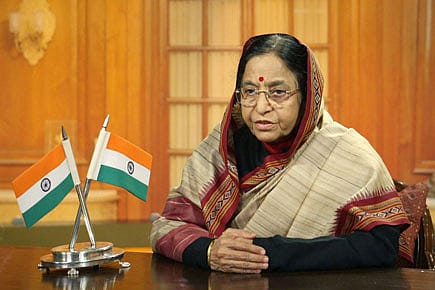Beg Your Pardon, Hon’ble President

The President need not justify her decisions on mercy petitions to anybody
Around the time that President Pratibha Patil was getting flak for waiving the death penalty awarded by the Judiciary to a number of convicts, India was united in prayers that her counterpart in Pakistan would exercise similar rights of presidential pardon and release Indian citizens languishing in Pakistani prisons on death row. In fact, just when the family of Surjeet Singh—who had served 30 years in a Pakistani jail—was celebrating his return, another Surjit Singh was aggrieved with President Patil's decision to pardon his father's assassins. This is proof enough that when dealing with a tool as powerful as presidential clemency, a debate over its use is bound to arise. Arguments cut both ways, with pro-amnesty supporters contending that society will gain nothing by jailing an individual for an extended period or by taking away a convict's life. Contrast this with the anguish of victims of heinous crimes who feel that such pardons destroy their only hope of receiving justice and perhaps obtaining retribution.
Historically, presidential pardons originated in public welfare—as a matter of good policy—to serve humanity; the underlying philosophy was the need for such power to be exercised as if it were an act of God's mercy, beyond mortal control. In secular terms, as clarified by President Patil's office, 'The power of pardon is part of the constitutional scheme and not a private act of grace on the part of the President.' Under the Indian Constitution, the President's clemency powers can only be exercised under advice of the Government.
Yet, such powers conferred on that office by the Constitution are very wide. Nevertheless, the expectation is that they will be exercised with great circumspection, reasonably and rationally, and would be subject to certain standards expected of a functional democracy. And while exercising this power to pardon a convict sentenced to death, the President does not exercise a judicial but an executive power. As noted in a judicial pronouncement, 'To render judgment is a judicial function. To carry the judgment into effect is an executive function. To cut short a sentence by an act of clemency is an exercise of executive power which abridges the enforcement of the judgment, but does not alter it qua a judgment.' It is important to clarify that while granting a pardon, the President is not required to assign any reason whatsoever for her decision to anyone.
AIming High
20 Feb 2026 - Vol 04 | Issue 59
India joins the Artificial Intelligence revolution with gusto
However, Presidential pardons are subject to judicial review. The Supreme Court of India in various pronouncements has clarified that the extent of the President's powers is subject to scrutiny, and the Court can intervene if the President's decision is arbitrary, discriminatory, mala fide or has been made on wholly irrelevant considerations. These safeguards help ensure that the powers of pardon are not misused by the political class. But even while undertaking a judicial review, the courts cannot go into the merits of a Presidential decision, or inquire what basis or information was used for the executive decision in a particular case. The pardon can only be reviewed to ensure that the President has acted within the constitutionally defined limits of her power.
No doubt, such pardons often generate negative public opinion, but the test is which side of the fence one is on. Let's take the case of Sarabjit Singh, who is convicted of an offence he claims he never committed but has spent 20 years in a Pakistani prison. Sarabjit's entire defence is that his is a case of mistaken identity and he has erroneously been tried and convicted for an offence committed by someone with a phonetically similar name. If true, should he not be pardoned? And if not, what, if anything, will be accomplished by executing Sarabjit today? Taking the life of an alleged murderer will not bring back those he is alleged to have killed. In fact, there is no data to support the contention that the death penalty deters violent crimes. But does that mean that convicts should be allowed to go scot-free? Absolutely not. Every country has the right to protect its sovereignty. But in doing so, should a state have the right to take a person's life even if that person is its own citizen? Yes, no, only in the rarest-of-rare cases?
Let's take note that the power of clemency is intended not only for the benefit of the convict, but, in exercising such powers, the President has to also keep in mind the effect of her decision on the family of the victim, on society as a whole, and the precedent it sets for the future. And when it involves citizens of another country, geo-political issues must also be factored in. Legally, the powers of clemency exist and had been incorporated in the Constitution to afford relief from any undue harshness in the enforcement of criminal law. Thus, while one can debate the merits or de-merits of Presidential pardons, let us not get carried away by questioning their legitimacy or the extent of the President's powers as they exist under the Indian Constitution.
Satvik Varma is an advocate at the Supreme Court and Delhi High Court. He is the founder of Independent Law Chambers in Delhi
